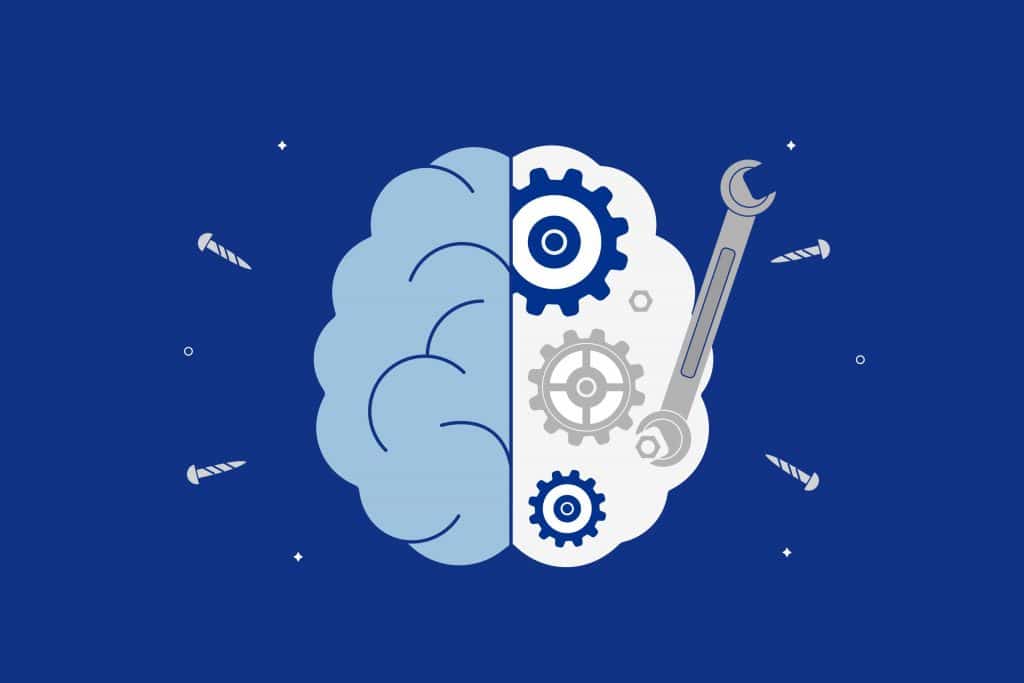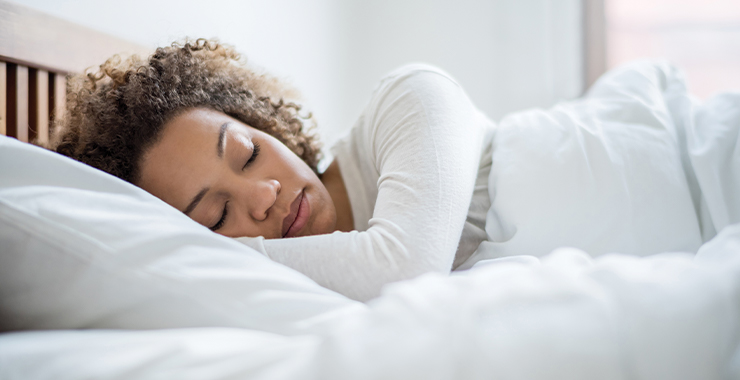Exercise Daily – Sleep is often underestimated when achieving your fitness goals. In this article, we will uncover the significant impact that a good night’s sleep can have on your fitness journey. From muscle recovery to weight management, we’ll delve into The Power of Sleep and its essential role in optimizing physical performance.
The Basics of Sleep
Before we dive into the connection between sleep and fitness, let’s start with the basics. What is sleep, and why do we need it? We’ll explore the science of sleep and its different stages.
Sleep is a fundamental biological need that our bodies require for various crucial functions. It’s a naturally recurring state of rest essential for physical and mental well-being.
1. The Sleep Cycle
Sleep is not a uniform state but a dynamic process with distinct stages. The sleep cycle consists of two main types of sleep: Rapid Eye Movement (REM) and Non-Rapid Eye Movement (NREM) sleep. These stages alternate throughout the night, creating a sleep cycle that repeats several times.
i. REM Sleep
- REM Stage 1 (NREM-1): The transition phase from wakefulness to sleep. It lasts for a few minutes, and your body begins to relax.
- REM Stage 2 (NREM-2): In this stage, your body temperature drops, and your heart rate slows. It’s a light sleep stage.
ii. NREM Sleep
- REM Stage 3 (NREM-3): Also known as deep or slow-wave sleep, this stage is essential for physical restoration and growth. It’s harder to wake up during this stage.
- REM Stage 4 (NREM-4): Another deep sleep stage that plays a crucial role in immune system function, tissue repair, and memory consolidation.
During the night, you cycle through these stages multiple times. The first part of the night consists of longer periods of deep NREM sleep, while the second half has more REM sleep associated with vivid dreams.
Muscle Recovery
Muscle recovery is a critical aspect of any fitness journey, and sleep plays a pivotal role in this process.
1. Growth Hormone Release
One of the captivating aspects of sleep is its ability to trigger the release of growth hormones. These hormones, such as human growth hormone (HGH), are essential for muscle growth and repair. Here’s how it works:
- During Deep Sleep: Growth hormone is primarily released during the deep stages of NREM sleep, particularly stages 3 and 4. These stages are characterized by slow-wave sleep, where your body experiences profound therapeutic effects.
- Muscle Repair: Growth hormone stimulates the growth and repair of muscles and tissues. It helps to rebuild the micro-tears that occur in muscles during intense workouts, making them stronger and more resilient.
- Enhanced Protein Synthesis: Sleep enhances protein synthesis, a process vital for muscle recovery. Protein synthesis allows your body to rebuild and strengthen the muscle fibers damaged during exercise.
2. Tissue Repair and Regeneration
Sleep is also crucial for the repair and regeneration of muscle tissues. Here’s how it contributes to this essential process:
- Reducing the Risk of Injuries: Adequate sleep helps prevent injuries by ensuring that muscles and connective tissues are in optimal condition. Sleep deprivation can lead to muscle imbalances and decreased flexibility, increasing the risk of injuries during workouts.
- Inflammation Reduction: Sleep aids in reducing inflammation in the body. Inflammation can hinder the healing and recovery of muscles. By promoting anti-inflammatory processes during sleep, your body can recover more efficiently.
- Immune System Support: A robust immune system is essential for overall health; sleep is vital in bolstering it. When well-rested, your immune system can function optimally, aiding muscle recovery.

Weight Management
Sleep is an often overlooked but essential factor when it comes to achieving and maintaining a healthy weight.
1. Hormone Regulation
Sleep plays a crucial role in regulating hormones that influence appetite and metabolism. Here’s how it works:
- Leptin and Ghrelin: These two hormones are key players in appetite control. Leptin signals your brain that you’re full, while ghrelin stimulates hunger. When you don’t get enough sleep, your leptin levels drop, and ghrelin levels rise, leading to increased appetite and a greater likelihood of overeating.
- Insulin Sensitivity: Sleep deprivation can also affect your body’s insulin sensitivity. Insulin regulates blood sugar levels and stores excess glucose as fat. When you’re sleep-deprived, your body becomes less sensitive to insulin, potentially leading to weight gain.
2. Energy Expenditure
Sleep directly impacts your energy levels, and this, in turn, affects your ability to burn calories effectively. Here’s how sleep affects your energy expenditure:
- Restoration of Energy: During sleep, your body restores energy stores, particularly glycogen, in your muscles and liver. This energy is essential for physical activity, including workouts. Insufficient sleep can leave you feeling tired and less motivated to exercise.
- Metabolic Rate: Sleep deprivation can slow your metabolic rate, meaning you burn fewer calories at rest. This can make creating a calorie deficit necessary for weight loss more challenging.
3. Emotional Eating and Stress
Inadequate sleep can increase stress and emotional eating, negatively impacting weight management. Here’s how it happens:
- Stress Hormones: Sleep deprivation triggers the release of stress hormones like cortisol. Elevated cortisol levels can lead to cravings for high-calorie comfort foods.
- Emotional Well-being: Lack of sleep can affect your mood and emotional well-being, making it more likely for you to turn to food for comfort.
4. Long-Term Effects
Consistently poor sleep over time can have long-term consequences for weight management. It’s not just about the occasional sleepless night; chronic sleep deprivation can lead to weight gain and obesity.
Cognitive Function
Fitness isn’t just about physical strength but also mental resilience and sharpness. Sleep is significant in enhancing cognitive function and is essential for achieving your fitness goals.
1. Memory Consolidation
One of the most fascinating aspects of sleep is its role in memory consolidation. Here’s how it works:
- Information Processing: While you sleep, your brain processes and organizes information from the day. This includes experiences, skills, and knowledge acquired during your fitness journey.
- Enhanced Learning: Adequate sleep helps consolidate new information and skills, making learning and adapting to new fitness routines and techniques easier.
2. Focus and Motivation
Maintaining focus and motivation is crucial for staying on track with your fitness goals. Sleep can significantly impact these aspects:
- Attention and Concentration: Sleep deprivation can lead to decreased attention span and reduced concentration ability, making it challenging to stay focused during workouts or follow a fitness plan.
- Mood Regulation: Sleep plays a vital role in regulating mood. A good night’s sleep can improve your mood and motivation levels, making staying motivated and committed to your fitness routine easier.
3. Problem-Solving and Decision-Making
Effective problem-solving and decision-making are essential for overcoming fitness obstacles and making the right choices for your health. Here’s how sleep affects these cognitive functions:
- Clear Thinking: Sleep helps you think more clearly and make rational decisions. You’re better equipped to address challenges and make informed choices regarding your fitness journey when well-rested.
- Reduced Impulsivity: Sleep deprivation can lead to increased impulsivity, making it more likely to give in to unhealthy food cravings or skip workouts.
4. Creativity and Innovation
Creativity can be valuable in your fitness routine, helping you develop innovative workout plans and dietary strategies. Sleep can boost your creative thinking:
- Dreams and Problem-Solving: REM sleep, the stage associated with vivid dreams, has been linked to creative problem-solving. Your dreams may offer insights and solutions related to your fitness goals.

Sleep Quality vs. Quantity
When it comes to sleep and its impact on your fitness goals, it’s not just about the quantity of sleep you get; sleep quality matters, too.
1. Tips for Improving Sleep Quality
Sleep quality refers to how restorative and deep your sleep is. Here are some tips to enhance the quality of your sleep:
- Create a Sleep-Conducive Environment: Make your bedroom comfortable and dark. Invest in a good mattress and pillows that support your body.
- Limit Screen Time Before Bed: The blue light emitted by screens can interfere with your body’s production of melatonin, a hormone that regulates sleep. Avoid screens for at least an hour before bedtime.
- Establish a Relaxing Bedtime Routine: Engage in calming activities before bed, such as reading, taking a warm bath, or practicing relaxation techniques like deep breathing.
- Manage Stress: High-stress levels can disrupt sleep. Practice stress-reduction techniques like meditation or yoga to calm your mind before sleep.
- Watch Your Diet: Avoid heavy meals, caffeine, and alcohol close to bedtime, as they can interfere with sleep quality.
- Keep a Consistent Sleep Schedule: Go to bed and wake up simultaneously every day, even on weekends. This helps regulate your body’s internal clock.
2. Balancing Quantity and Quality
While it’s essential to focus on sleep quality, you must also consider the quantity of sleep you get. The ideal amount of sleep varies from person to person, but most adults should aim for 7-9 hours of quality sleep per night.
- Finding Your Sweet Spot: Some people function best with 7 hours of sleep, while others may need closer to 9. Experiment to find your ideal sleep duration by paying attention to how you feel during the day.
- Consistency Is Key: Maintaining a consistent sleep schedule is crucial. Even if you’re getting the recommended 7-9 hours, irregular sleep patterns can disrupt your body’s internal clock.
- Listen to Your Body: Pay attention to your body’s signals. If you consistently wake up feeling refreshed after 7 hours of sleep, that may be your optimal quantity.
- Naps: Short naps during the day can be beneficial, especially if you don’t sleep enough at night. However, avoid long or late-afternoon naps, which can interfere with nighttime sleep.

The Night Owl Dilemma
Not everyone’s internal clock aligns with the conventional early bird schedule. For those who identify as night owls, late-night workouts and irregular sleep patterns can present unique challenges in their fitness journey.
1. Creating a Sleep-Friendly Routine
Being a night owl doesn’t mean you can’t achieve your fitness goals; it just requires a tailored approach. Here’s how you can create a sleep-friendly routine:
- Consistent Sleep Schedule: Even as a night owl, try to maintain a consistent sleep schedule. Go to bed and wake up simultaneously every day, even on weekends. This helps regulate your body’s internal clock.
- Gradual Adjustments: If you want to shift your sleep schedule earlier, do it gradually. Adjust your bedtime by 15-30 minutes earlier each night until you reach your desired sleep time.
- Darken Your Environment: Make your bedroom as dark as possible to signal to your body that it’s time to sleep. Invest in blackout curtains if necessary.
- Limit Exposure to Screens: The blue light from screens can interfere with your ability to fall asleep. Reduce screen time before bedtime to help your body wind down.
- Wind-Down Routine: Develop a relaxing bedtime routine to signal to your body that it’s time to sleep. This could include reading, taking a warm bath, or practicing relaxation techniques.
2. Night Owl Workouts
If you prefer exercising at night, here are some tips for incorporating late-night workouts into your routine:
- Warm-Up Properly: Late-night workouts can be effective, but your body may be stiffer than in the morning. Spend extra time warming up to prevent injuries.
- Hydrate and Fuel: Pay attention to your nutrition. Have a light, balanced meal or snack a couple of hours before your workout to ensure you have enough energy.
- Stay Hydrated: Hydrate well throughout the day to support your workout performance. Avoid consuming caffeine too close to your workout time.
- Wind Down After Workouts: After intense workouts, take some time to wind down before attempting to sleep. Stretch, practice relaxation techniques, and avoid vigorous activities immediately before bed.
3. The Importance of Consistency
Regardless of your sleep schedule, consistency is key. Aim to get the recommended 7-9 hours of sleep per night, even if it means adjusting your schedule to align better with your fitness goals. Maintaining a consistent sleep pattern can help you reap the benefits of quality sleep and effective workouts.
Conclusion
Sleep is not an indulgence but an essential component of achieving your fitness goals. By prioritizing quality sleep, you can elevate your physical and mental performance.
FAQs – The Power of Sleep: How Rest Affects Your Fitness Goals
Q1. How much sleep should I get for optimal fitness results?
The ideal amount of sleep varies, but most adults should aim for 7-9 hours of quality sleep per night.
Q2. Can I make up for lost sleep on the weekends?
While it’s better than nothing, it’s essential to maintain a consistent sleep schedule throughout the week for the best fitness outcomes.
Q3. Are there any supplements that can improve sleep quality?
Please consult a healthcare professional before taking supplements, as they may have side effects or interact with other medications.
Q4. Can poor sleep lead to weight gain?
Yes, inadequate sleep can disrupt hormones that regulate appetite, potentially leading to weight gain.
Q5. How long does it take to see improvements in fitness after prioritizing sleep?
Individual results may vary, but you can expect energy levels and performance improvements within a few weeks of consistent, quality sleep.




